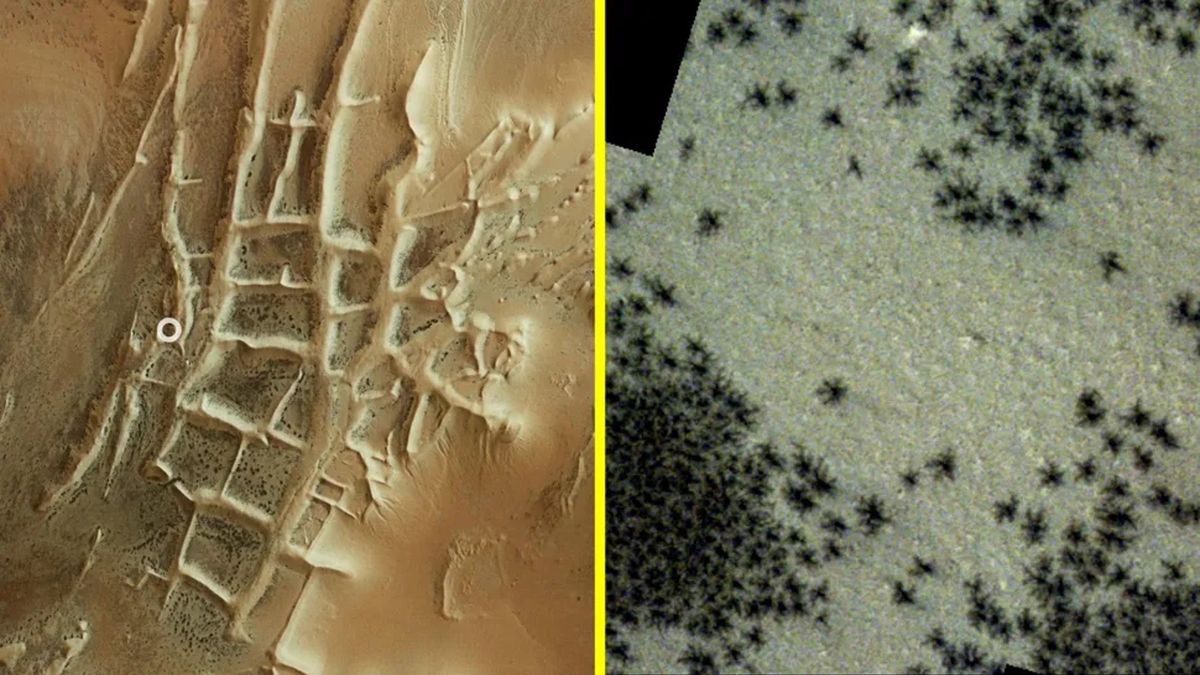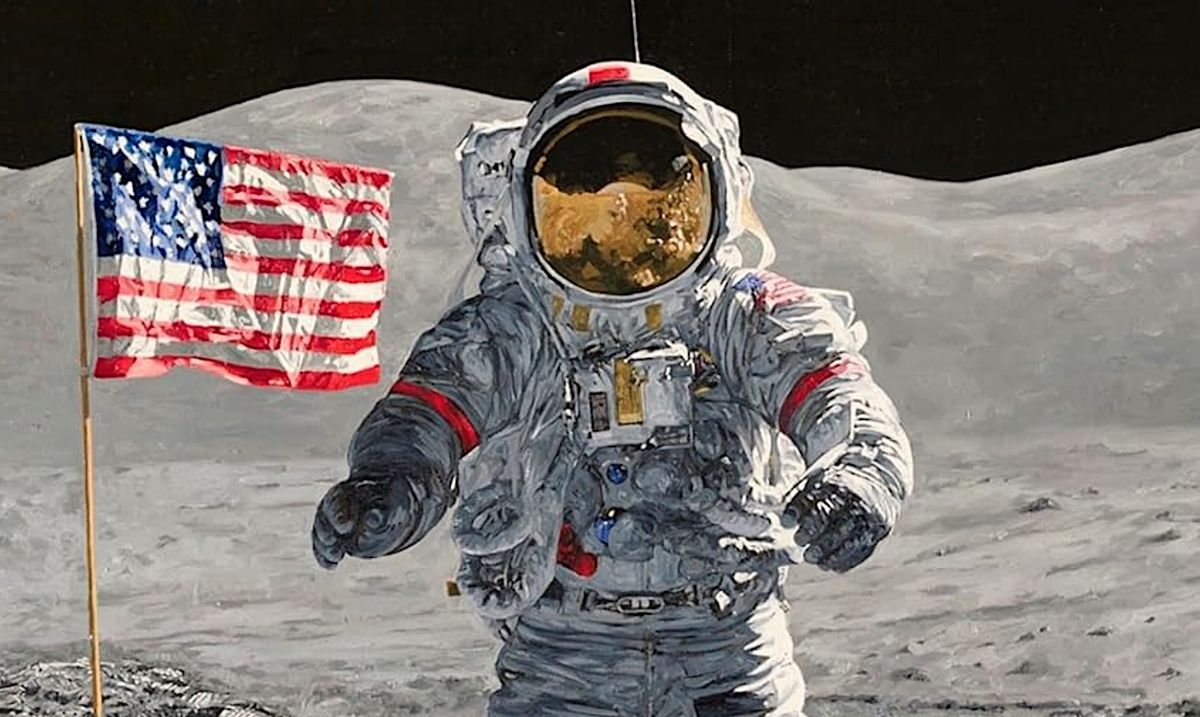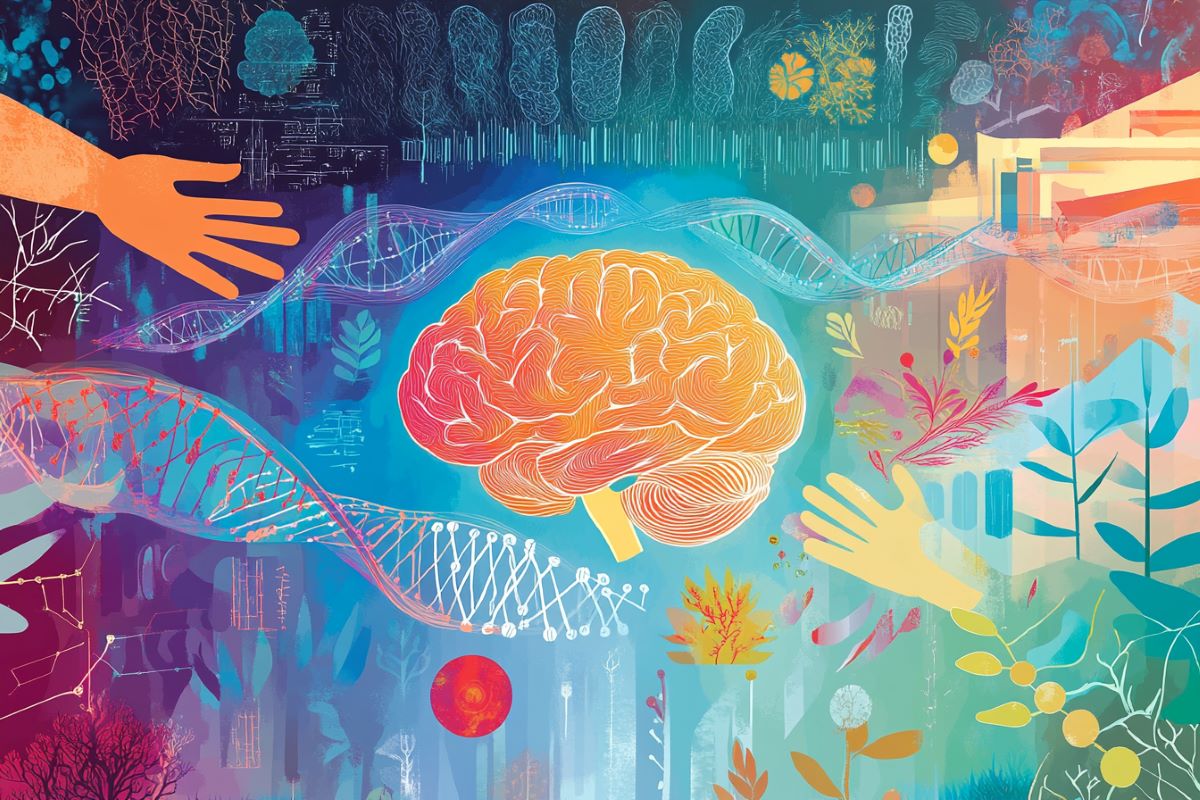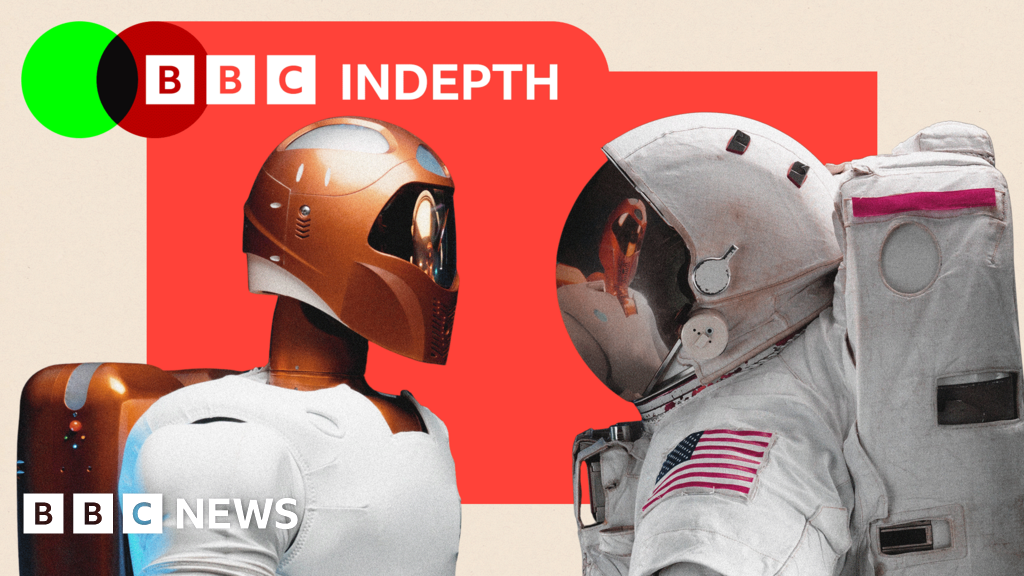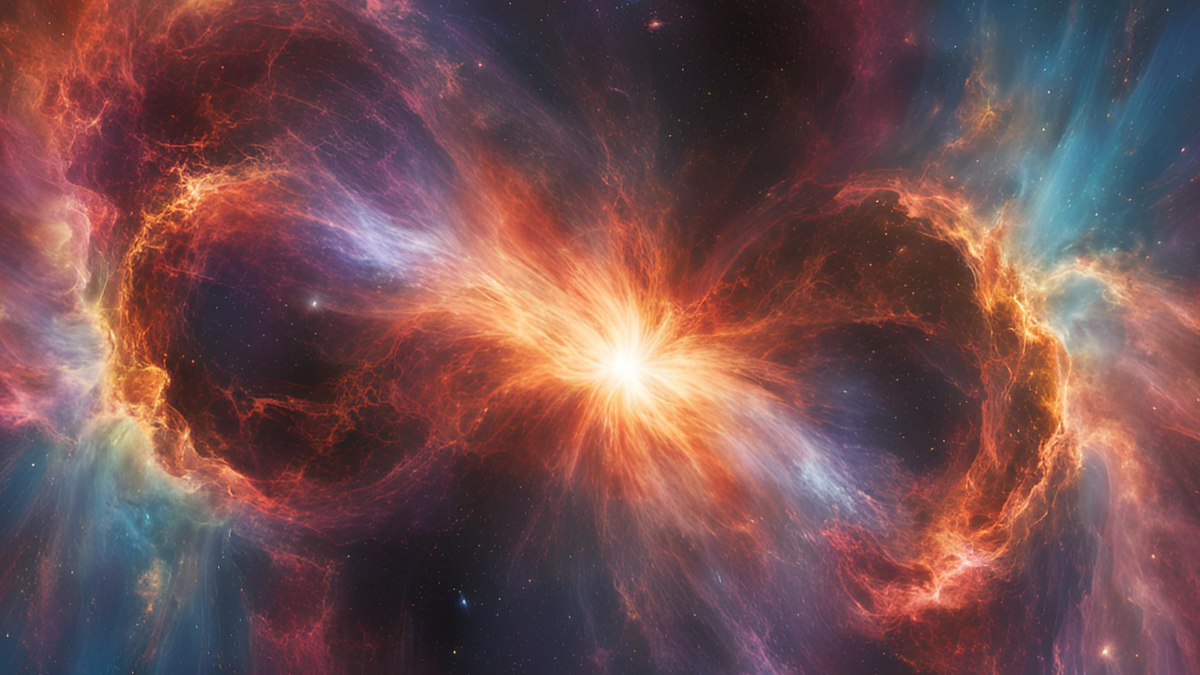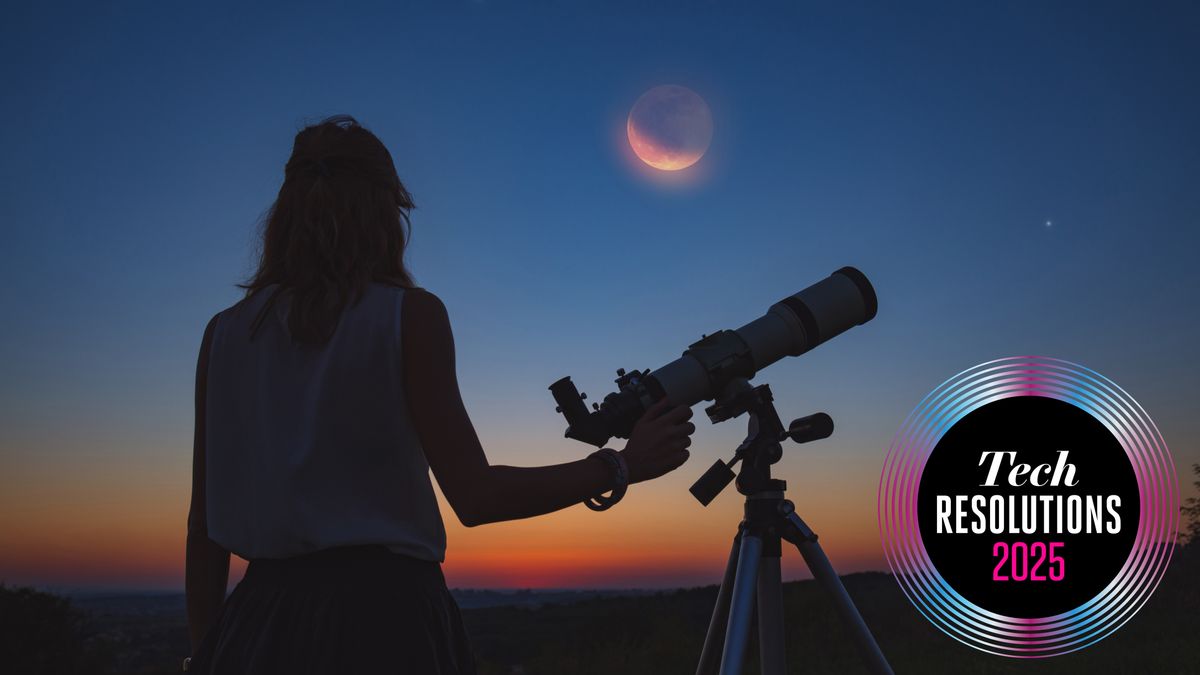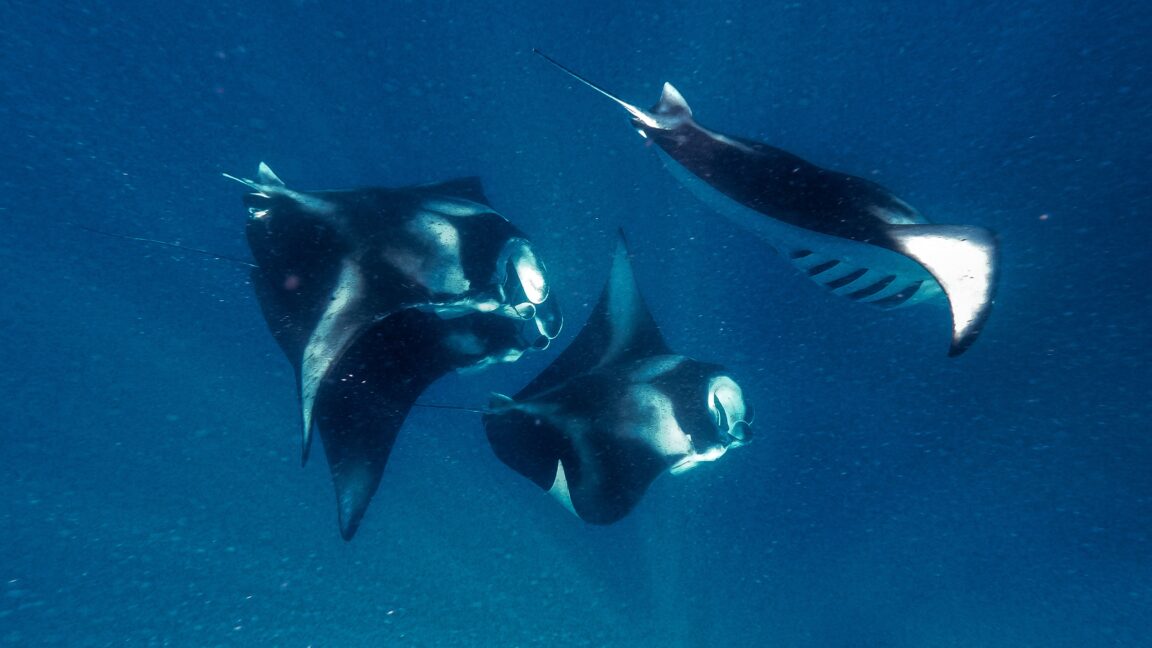Space debris may create a future with no internet or astronaut missions
Space debris threatens satellites and astronauts, highlighting the urgency to prevent cascading collisions in orbit.
Earth.com (www.earth.com)
• Published 4 months ago
• Viewed: 0
• Clicked: 0
10 amazing things we found on Mars in 2024, from hundreds of 'spiders' to a 'Martian dog'
From arachnid-like formations and mysterious blobs to an underground ocean and a giant volcano, here are our 10 favorite things scientists discovered on Mars this year.
Live Science (www.livescience.com)
• Published 4 months ago
• Viewed: 0
• Clicked: 0
'Star Bound' serves up a 'snarky approach to space history' and the American space program (exclusive)
Blast off into the fascinating history of America's visionary quest to explore the heavens
Space.com (www.space.com)
• Published 4 months ago
• Viewed: 0
• Clicked: 0
How Early Experiences Shape Genes, Brain Health, and Resilience
New research in epigenetics reveals how early-life experiences influence gene expression and brain development.
Neurosciencenews.com (neurosciencenews.com)
• Published 3 months ago
• Viewed: 0
• Clicked: 0
Revolutionizing Brain Diagnostics with Light and AI
A new "molecular lantern" technique allows researchers to monitor molecular changes in the brain non-invasively using a thin light-emitting probe.
Neurosciencenews.com (neurosciencenews.com)
• Published 4 months ago
• Viewed: 0
• Clicked: 0
Fit for a Sci-Fi Movie: NASA Claims China Can Slow Down Earth's Rotation with a Single Gesture
What if a single human-made structure could subtly alter the Earth’s rotation? The colossal barrage des Trois Gorges in China doesn’t just generate record-breaking electricity—it also shifts planetary mechanics in ways you’d never expect. NASA’s findings reve…
The Daily Galaxy --Great Discoveries Channel (dailygalaxy.com)
• Published 4 months ago
• Viewed: 0
• Clicked: 0
Future of space: Could robots really replace human astronauts?
Advances in technology raise questions about the need to send people to space - and the risks and cost
BBC News (www.bbc.com)
• Published 4 months ago
• Viewed: 0
• Clicked: 0
Earth from space: 'Lake of clouds' appears between volcanic nesting dolls in Russia via rare mirror-like phenomenon
A 2023 astronaut photo captured a rare effect, known as sunglint, transforming the surface of one of Russia's deepest lakes into a sea of swirling clouds. The crater lake is sandwiched between a pair of unusual volcanic "nesting dolls" on a Pacific island.
Live Science (www.livescience.com)
• Published 4 months ago
• Viewed: 0
• Clicked: 0
Meteor showers, lunar eclipse: Here are 7 space events to look up for in 2025
The new year holds several astronomical events Oklahomans can enjoy, one of which has already begun. Here are some major space events to see in 2025.
Oklahoman.com (www.oklahoman.com)
• Published 4 months ago
• Viewed: 0
• Clicked: 0
Northern lights could be visible in Maine this New Year’s Eve
Solar storms may bring northern lights to several states in the northern part of the U.S. as people ring in the new year.
Press Herald (www.pressherald.com)
• Published 4 months ago
• Viewed: 0
• Clicked: 0
Was 2024 the year we finally started to understand dark energy?
"Up to this year, most observations were consistent, with dark energy being the cosmological constant. Nonetheless, 2024 was full of hints pointing out this might not be the case."
Space.com (www.space.com)
• Published 4 months ago
• Viewed: 0
• Clicked: 0
The Surprising Physics Behind Your Cozy Christmas Sweater: Scientists Reveal Its Shape-Shifting Secret
What makes your favorite winter sweater so perfectly snug and flexible? Scientists have uncovered a surprising force at play in the fabric’s ability to adapt to different shapes. It’s not just about the yarn or the stitches—it’s something hidden in plain sigh…
The Daily Galaxy --Great Discoveries Channel (dailygalaxy.com)
• Published 4 months ago
• Viewed: 0
• Clicked: 0
Humans will soon be able to mine on the Moon. But should we? 4 questions to consider
Imagine you’ve worked 12 hours in hot and dirty conditions. Some of your co-workers have collapsed or been injured. You wish you could just get another job. But you can’t. You’re stuck in space.
The Conversation Africa (theconversation.com)
• Published 4 months ago
• Viewed: 0
• Clicked: 0
How to step up your stargazing game in 2025 on the cheap, according to space experts
Tips, telescopes and cameras for observing the night sky
TechRadar (www.techradar.com)
• Published 4 months ago
• Viewed: 0
• Clicked: 0
Study to examine environmental impacts of increased SpaceX launches from Vandenberg
A new environmental study is intended to support the continued increase of SpaceX launches from a California spaceport, but that growth faces obstacles.
SpaceNews (spacenews.com)
• Published 4 months ago
• Viewed: 0
• Clicked: 0
Undersea Volcano Off The US West Coast Predicted To Erupt In 2025
If scientists are right, this would be the first successful long-term prediction of a volcanic eruption.
IFLScience (www.iflscience.com)
• Published 4 months ago
• Viewed: 0
• Clicked: 0
Strong Solar Storm Warning Issued For Today As Sun Sends “Fireworks” To Earth
A celestial end-of-the-year light show is certainly a way to welcome 2025.
IFLScience (www.iflscience.com)
• Published 3 months ago
• Viewed: 0
• Clicked: 0
Manta rays inspire faster swimming robots and better water filters
Efficient swimming and feeding make the creatures a model for human machines.
Ars Technica (arstechnica.com)
• Published 3 months ago
• Viewed: 0
• Clicked: 0
Want to Find a Black Hole? Start with the Oldest Rock You Can Get Your Hands On
Could black holes be hiding in plain sight? Scientists suggest that ancient rocks and solid objects could carry microscopic clues of primordial black holes—tiny remnants of the universe's earliest moments. These black holes, smaller than a dime, might leave b…
The Daily Galaxy --Great Discoveries Channel (dailygalaxy.com)
• Published 3 months ago
• Viewed: 0
• Clicked: 0
Bay Area astronomers say what would actually cause a 'Kessler Syndrome' crisis
Bay Area scientists weigh in on the “Kessler Syndrome,” the looming space junk crisis that would disrupt how we use satellites and our atmosphere on Earth.
SFGate (www.sfgate.com)
• Published 3 months ago
• Viewed: 0
• Clicked: 0

